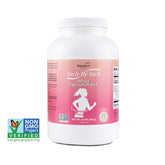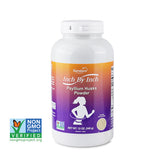“Good for Your Heart and Bones?”… 4 Surprising Health Benefits of Cabbage

Cabbage supports heart and bone health — and can aid in weight loss, too.
Cabbage, a member of the cruciferous vegetable family, is well-known for promoting digestive health. It contains plant-based compounds that increase the number of beneficial gut bacteria, helping to strengthen the stomach. It’s also rich in vitamin U — an anti-ulcer compound that binds with proteins to protect and heal the stomach lining.
But cabbage’s benefits extend far beyond the digestive system. It helps prevent arteriosclerosis, fights harmful pathogens, and supports overall health. Based on information from the U.S. health media outlet Health and other sources, here are four unexpected advantages of adding cabbage to your diet:
1. Heart Health
According to researchers at Edith Cowan University in Australia, women who consumed plenty of cabbage were 46% less likely to experience abdominal aortic calcification — a condition where calcium builds up in the abdominal aorta. In other words, cabbage may help prevent harmful calcium deposits. It’s also rich in anti-inflammatory compounds that support cardiovascular health.
2. Immunity Boost
Cabbage is loaded with vitamin C, which plays a key role in iron absorption from plant-based foods and supports collagen production, essential for wound healing. Most importantly, vitamin C is vital for the proper functioning of the immune system.
To fully benefit from the nutrients in cabbage — especially vitamin C — it’s important to cook it properly. Avoid overboiling or steaming it for long periods. Light stir-frying is fine, but the best option is eating it raw in finely shredded salads.
3. Weight Loss
Cabbage is high in dietary fiber, which helps regulate blood sugar and reduce cholesterol levels. Fiber also promotes a feeling of fullness, reducing the likelihood of overeating. Plus, cabbage is extremely low in calories, making it a great food for weight management.
4. Bone Health
One cup of cooked cabbage contains about 68 micrograms of vitamin K. While there’s no official guideline in Korea, the recommended daily intake in the U.S. is 120 micrograms for adult men and 90 micrograms for women.
Vitamin K plays a key role in blood clotting and bone health. A deficiency can lead to easy bruising, weaker bones, and an increased risk of osteoporosis.
Source: 코메디닷컴(https://kormedi.com/)
Chunho Cabbage Premium (30pk)
80ml x 60pack
$150

![Inch By Inch (Psyllium Husks Powder) [Buy 4 Get 1 FREE] - Health Korea Shop](http://healthkoreashop.com/cdn/shop/files/health-korea-shop-default-title-inch-by-inch-psyllium-husks-powder-buy-4-get-1-free-26476880429165_165x.gif?v=1757024963)
![Inch By Inch (Psyllium Husks Powder) [Buy 4 Get 1 FREE] - Health Korea Shop](http://healthkoreashop.com/cdn/shop/files/health-korea-shop-default-title-inch-by-inch-psyllium-husks-powder-buy-4-get-1-free-26471389102189_165x.jpg?v=1757024971)
![Inch By Inch (Whole Psyllium Husks) [Buy 3 Get 1 FREE] - Health Korea Shop](http://healthkoreashop.com/cdn/shop/files/health-korea-shop-default-title-inch-by-inch-whole-psyllium-husks-buy-3-get-1-free-26471348764781_165x.jpg?v=1757024989)

![Inch By Inch (Organic Psyllium Husks Powder) [Buy 3 Get 1 FREE] - Health Korea Shop](http://healthkoreashop.com/cdn/shop/files/health-korea-shop-default-title-inch-by-inch-organic-psyllium-husks-powder-buy-3-get-1-free-26471394771053_165x.jpg?v=1757024965)
![Inch By Inch (Organic Psyllium Husks Powder) [Buy 3 Get 1 FREE] - Health Korea Shop](http://healthkoreashop.com/cdn/shop/files/health-korea-shop-default-title-inch-by-inch-organic-psyllium-husks-powder-buy-3-get-1-free-26471394803821_165x.png?v=1757025003)

